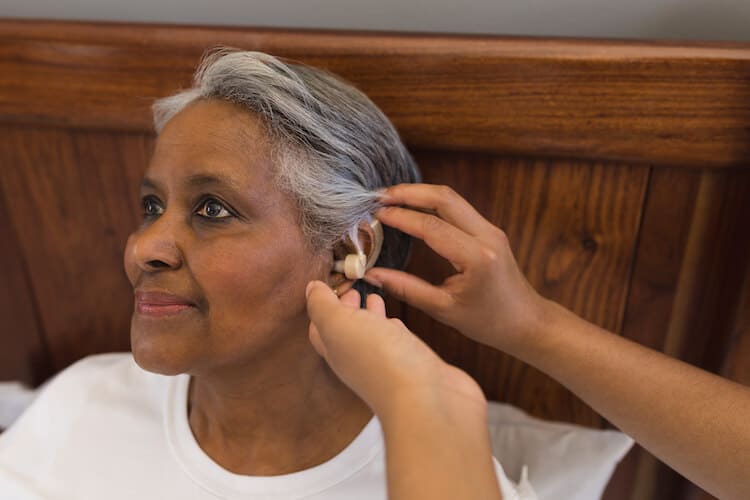When to Get Hearing Aids

Is It Time for Hearing Aids?
Hearing loss can affect anyone at any age. According to the Hearing Health Foundation, more than 48 million Americans already suffer from some sort of hearing loss. In fact, some people are experiencing hearing loss now, and do not yet realize it. If you suspect that you or a loved one is dealing with hearing loss, hearing aids can help. Find out if you can benefit from hearing aids, and learn why you shouldn’t put it off any longer!
What are Hearing Aids?
Hearing aids are small electronic devices that can fit either on the ear or within the ear canal itself. Most, if not all hearing aids are made from the same basic parts and are easily replaceable. Many digital hearing aids come with a microphone to pick up sound, a computer chip to amplify and process sound, a speaker to send the signal into the ear, and a battery to power the entire system. The power of the hearing aid depends on the user’s hearing loss. Some aids also come with extra features, such as wireless connectivity, volume control and noise reduction.
How to Tell if You have Hearing Loss
The symptoms of hearing loss can be subtle and can also be hard to miss. In addition, some symptoms can appear gradually, and slowly get worse over time. Here are some warning signs of hearing loss:
- Difficulty hearing on the phone or video calls
- Constantly asking people to repeat themselves
- Thinking people are mumbling or speaking too softly
- Turning things up so loud that others complain
- Constant ringing in the ears
- Social bluffing (pretending to hear the person’s words, or attempting to read their lips to understand what they are saying)
While these are common symptoms, hearing loss can also occur due to aging. Age-related hearing loss can cause seniors to lose the ability to hear high-pitched sounds, such as microwave beeps, children’s voices and certain consonant sounds. If you or a loved one has any of these symptoms, hearing loss may already be present. It might be time to consult your doctor and consider a hearing aid.
Hearing Aid Options and Costs
Fortunately, there are several options for hearing aids available to suit your style and comfort level. Hearing aids typically come in a few varieties and can be customized by color and metallic finish. Here are some styles of hearing aids:
In-The-Ear
This style renders the hearing aid “invisible” by fitting completely in the ear. Invisible-in-the-canal hearing aids fit deeper into the ear than completely-in-the-canal options. This style is very discreet and small, although it lacks volume control and can be susceptible to earwax.
Receiver-In-The-Ear
This style is an open-fit hearing aid. The speaker of the hearing aid rests in the ear canal, but the microphone and processor sit in a tiny case behind the ear. They are connected by a thin wire. Many manufacturers make this kind of hearing aid style, as it comes with a rechargeable battery option, and the speakers can easily be replaced. However, this type of hearing aid is readily visible, which can cause social discomfort with some users.
Behind-The-Ear Earmold
This style fits the contour of the outer ear and generally has more features (volume control, battery life, etc.) than other styles. The parts are easily replaceable and this version is good for all types of hearing loss. However, because of its positioning, it may cause problems with those wearing eyeglasses, and the hearing aid itself is quite visible.
Depending on your needs, the features of the hearing aid and several other factors, you could expect to pay anywhere between $1,000 to more than $6,000 for a hearing aid. It’s recommended to consult with your insurance provider to determine if your benefits also cover hearing aid costs. Some state plans cover a portion of costs, while private health insurance may also provide coverage.
Medical and Support Services for Seniors at Advent Christian Village
If you or a loved one is in need of a hearing aid, there is no better time than the present to treat hearing loss, according to Dr. Debra Griffin of Advent Christian Village’s Copeland Medical Center. Untreated hearing loss can be socially isolating, and there’s just no need to endure it if you don’t have to.
At Advent Christian Village, we offer a variety of senior care services, all on one campus. Our medical services are designed to support each individual’s well-being, health and independence. To learn more about senior living at Advent Christian Village, please contact us today!



